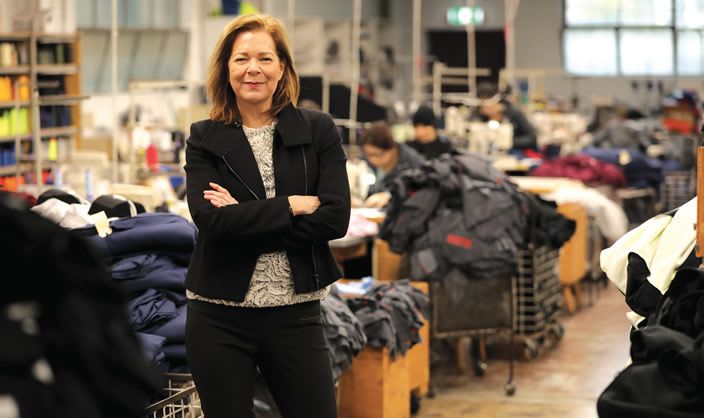
Like many products of the Catholic system, Michele O’Neil’s earliest memories of school are characterised by those “formidable nuns”, not scared of standing up to authority, journalist Sue Osborne writes.
The ACTU President attended Catholic primaries in Melbourne and Canberra before her high school years at Braddon Catholic Girls High School in Canberra (now Merici College).
Michele admits she wasn’t the easiest student, with a tendency to rebel. “Some parts of school I found fascinating, others not. I loved the social aspect.”
Her activism developed at a young age. Her five big sisters were a major influence, as were her parents. Her father was a public servant and her mother worked in a tannery, as a factory worker and a waitress. Conversations about politics and social justice were common around the dining table.
Michele became national secretary of the Textile Union after 27 years as organiser, industrial officer and state secretary.
She was elected as ACTU President in July 2018 when the incumbent Ged Kearney won the Federal seat of Batman – since renamed Cooper – at a by-election in March 2018.
One of her proudest achievements was being part of the campaign to introduce world first legislation in 2008 that gave textile workers in sweatshops and at home the right to demand restitution for missed pay, leave and super all the way up the supply chain.









































































































































